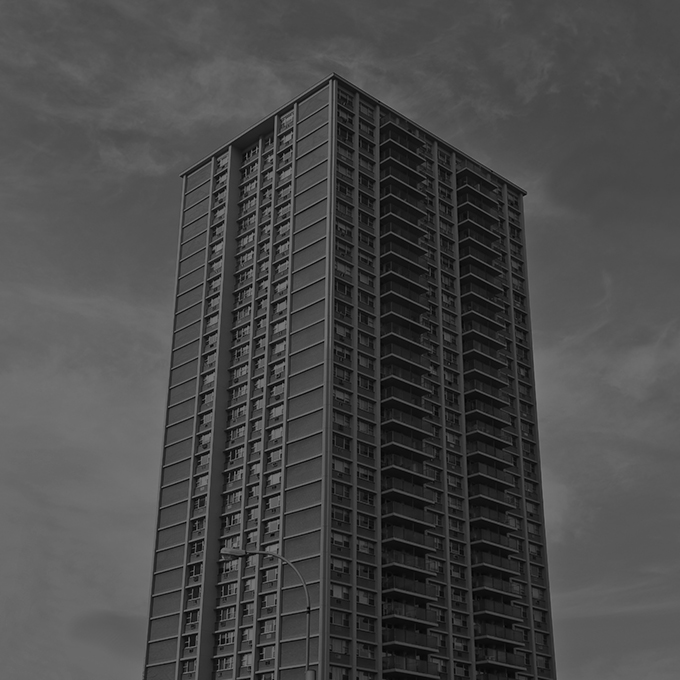TORONTO'S LEGACY OF INCLUSIVE CITY BUILDING
REMI - Erin Rudy
As the city of Toronto accelerates efforts to address housing affordability, inclusivity and the barriers inhibiting rapid housing development were top of mind at the Urban Land Institute’s Spring Meeting in mid-May.
Toronto urgently needs more housing, of all sizes and tenures. With flagship government initiatives like Housing Now failing to gain traction since it launched in 2019 — despite the City’s $1.3 billion commitment — any attempts to expedite the delivery of purpose-built rental housing have stalled. This failure to get shovels in the ground comes at a time when the need for more purpose-built rental housing has never been greater. Toronto’s vacancy rate currently sits at 1.7 per cent, and home ownership rates have dropped to the lowest level on record. Meanwhile, there is increased pressure to expand rental housing supply to support the anticipated population and economic growth through unprecedented immigration.
Although the Housing Now program suffered largely from pandemic-driven challenges, including lockdowns, supply chain issues, labour shortages and rising construction costs, the fact remains Toronto has been short on housing for years.
"“We are welcoming 500,000 new Canadians on an annual basis, many of whom will be settling here in the GTA."
“We have only recently begun to get some really good data that demonstrates the magnitude of the supply challenge,” said Jennifer Keesmaat of Markee Developments/The Keesmaat Group and moderator of the session entitled, Housing Affordability: Success is in the Mix. “This data puts a fine point on what’s been happening over the course of the past five to ten years — that we have a complete mismatch between the amount of growth we are seeing and the amount of supply we are delivering across the city. Anyone who looks around and sees the cranes in the sky is shocked by this because there is so much being built. But the truth is we are growing at an astronomical rate, and we have not seen our housing stats increase substantially after 2016.”
According to Keesmaat, the current supply deficit and the myth that the market will just “take care of affordability” have led to interventions by the government to ensure lower-income residents aren’t edged out of coveted neighbourhoods. But Frank Lewinberg, Partner Emeritus at Urban Strategies Inc., said a comparable conversation was happening back in the 1970s.
“It was a similar time,” he said. “We were talking about the fast-rising housing prices, the difficulty of young people with families getting housing, and the fact that lower income people had no hope at all.”
Hence why the federal government decided to invest in projects like the St. Lawrence Neighbourhood, Canada’s first attempt to develop a deliberately mixed-use, mixed-income community. As an architect on the project, Lewinberg said the mix of market-priced housing with public, non-profit and co-op residences became a catalyst for the neighbourhood at large, which was supported by necessary services like schools, supermarkets, restaurants and retail shops.
oday, the St. Lawrence Neighbourhood serves as a model for similar mixed-income projects, including Regent Park, Alexandra Park (pictured right), and Lawrence Heights. As these examples show, the pursuit of inclusivity by blurring the income lines of residents can be an effective strategy for strengthening the city’s communities. But as the massive surge in population growth fuels an unprecedented housing crisis in Toronto, is the mixed-income approach to city-building still the right way forward?
“We are welcoming 500,000 new Canadians on an annual basis, many of whom will be settling here in the GTA,” said Brad Bradford, City Councillor representing Beaches and East York, and candidate in the current Toronto mayoral race. “[This] puts a tremendous amount of challenge before us with respect to housing, coupled with 30 per cent increased cost of construction, 40 per cent increased cost in financing, and the shortage of labour and trades. We are facing historic headwinds.”
In addition to these challenges, there are rough political waters to navigate. As Bradford put it, “planning is politics” and politicians are not always known for getting things right. “Some politicians have literally made their careers on the backs of opposing housing,” he said, citing examples of projects that were sidelined for having too many storeys or other unfavourable design features. “How do we create a culture of change? How do we move away from saying ‘no’ to saying ‘yes’ to housing opportunities?”
Bradford, like his fellow panelists, believe the answer still lies in the cross-subsidy model, calling it the “key to unlocking housing.” While the approach alleviates some of the financial burden given the market units cross-subsidize the affordable ones, the long-term benefits for the residents can include poverty alleviation, improved housing quality and services, better location and amenities — all of which contribute to healthier economic conditions and help break down barriers.
But to be truly feasible, the panelists agreed that large, mixed-income projects require additional financing from governments; less prohibitive fees and red tape; and a more outcome- vs. process-focused approach. According to Heela Omarkhail, VP, Social Impact at the Daniels Corporation, they also need strong partnerships.
“The ability for a private company to partner with government and bring our thinking, our experiences and really help shape the process, was critical,” she said, referring to the Regent Park redevelopment project that began in 2005. “We were able to leverage our networks, our relationships, and our capital to bring more to the table.”

MORE THAN 1/2 GTA CONDO LANDLORDS LOOSING MONEY
The Canadian Press - Tara Deschamps
Last year marked the first time that more than half of investors in newly-completed Greater Toronto Area condos were losing money on their rental properties, and authors of the report that reached that conclusion expect the trend to persist. The research from the Canadian Imperial Bank of Commerce and real estate research firm Urbanation found 48 per cent of leveraged condo investors who bought pre-construction units to rent out were cash flow positive in 2022. For the majority of investors, rent generated by newly-completed units was lower than mortgage costs, condo fees and property taxes.
“This marks a meaningful shift that may potentially signal that a change in investor behaviour is on the horizon,” CIBC’s Benjamin Tal and Urbanation’s Shaun Hildebrand said in their report released Monday. They say they expect the shift toward negative cash flow to worsen in the years ahead as increasingly expensive new condos presold to investors in the past few years reach completion.
They add a reduction in interest rates and further growth in rents will lighten the impact on investors in the years ahead, but won’t be enough to stop their financial situations from getting worse. However, they said, “a lot depends on the outlook for prices and the credit environment. “If investors are able to get financing and prices are rising, they may be encouraged to hold in the rental market even with negative cash flow.” They feel investors have held off selling because housing supply is constrained and not poised to improve by much.
They found developers have the capacity to deliver no more than roughly 20,000 units per year, which represents marginal growth for a condo stock in the GTA that is approaching a half million units.
“Any investor selling will be welcomed by a tight resale market,” Tal and Hildebrand said. However, if investors become unwilling to buy into presales, new condo demand will shrink along with new construction, deliveries and ultimately rental supply. Tal and Hildebrand’s report comes after Rentals.ca research revealed average advertised rental prices in April were up 20 per cent from pandemic lows in April 2021.
Average rents across Canada were up 9.6 per cent compared with April 2022.
CANADIAN BUILDING PERMITS - DOWN
STATSCAN
The total monthly value of building permits in Canada dropped 18.8% to $9.6 billion in April, the lowest level since December 2020.
Following a record high in March, the total monthly value of non-residential permits fell 34.6% to $3.4 billion in April. The drop was observed across all components but was most pronounced in commercial (-40.2% or - $1.1 billion) and industrial (-49.6% or -$663.8 million) construction intentions.
On a seasonally unadjusted basis, the average commercial permit was valued at $433,000 in April compared with $901,000 in March. Similarly, the average industrial permit was valued at $413,000 in April compared with $1.7 million in March. The significantly lower average permit values show that the monthly declines in April are attributed to exceptionally high volumes of large-scale projects in March.
The total monthly value of residential permits declined 6.1% to $6.1 billion, sliding for the second consecutive month. Declines were posted for both the single-family and multi-dwelling components. Ontario (down 10.5% or -$296.4 million) greatly contributed to the monthly decrease in the residential sector.
RECENT APARTMENT SALES
SALPAM PORTFOLIO - GTA - $170,181,000 / $286,500 PER SUITE
This is the sale of 5 rental apartment buildings in the GTA owned by a family for many years. There were a total of 594 suites and the buildings included were: 2375 The Collegeway; 2360 Birchmount Road; 2200 Roche Court; 2445 The Collegeway; and 1264 York Mills Road. The assets ranged is size from 76 to 186 suites are were well maintained and managed over the years. The suites were above average in size with almost $30MM spent in cap ex since 2018. With 30% of the suites renovated substantial rental upside was still unlocked in the assets. The properties were fully marketed and exposed and the buyer was Starlight Investments Ltd.
2808-2810 KEELE STREET - NORTH YORK - $15,275,000 / $282,870 PER SUITE / 3.75% CAP RATE
This is a 4-5 storey free standing rental apartment building and containing 53 suites and one single family home. Built in 1960's, this concrete building has been held by the same family for decades. It has a hot water gas fired heating system and rents include all utilities (except Hydro). There is on site laundry and surface parking for 61 cars. The building had substantial rental upside and many of the suites were in original condition. The property also is 1.65 acres in size and is currently underutilized. The property was fully marketed and sold to a private apartment investor.
2260 LAWRENCE AVENUE EAST - SCARBOROUGH - $7,500,000 / $288,460 PER SUITE
This is the sale of a 26 suite rental apartment building dating from the 1960's. It has a brick and siding exterior, double windows, flat roof and is of concrete construction. There are mostly one and bedrooms. The asset is well maintained and well located. The building was heated by a gas fired radiant system and there is 12 parking spaces. This property was fully occupied with rental upside. The property was not fully marketed and sold to a private investor who owns in the area.
THE APARTMENT GROUP
Together the team has completed over 1,500 transactions and has sold over $7.0 billion in apartments and development land. Put us to work for you and see the results. NO ONE has sold more buildings than our group. Experience, knowledge and professionalism will insure you get the right deal or the highest price if you are selling.
The Apartment Group is a dedicated team of professionals specializing in the sale of multi-residential investment properties. With over 40 years of combined experience, the team brings together their strengths including strong negotiation and sales skills along with highly technical market analysis and appraisal methods.
We are a boutique Brokerage but have the capabilities of the larger houses without the overhead. We have: an internal database of over 10,500 active apartment and land Buyers; a list of all apartment building owners in the Greater Toronto Area; our web site gets over 50,000 hits a month; we highlight properties for sale through our newsletter which reaches 10,000 investors monthly.
MITCHELL CHANG
President & Owner,
Salesperson
Direct: 416-219-0436
mchang@cfrealty.ca
LORENZO DIGIANFELICE, AACI
Broker of Record, Owner
Direct 416-417-9098
ldigianfelice@cfrealty.ca
JAKE RINGWALD
Salesperson
Direct 416-996-7713
jringwald@cfrealty.ca


